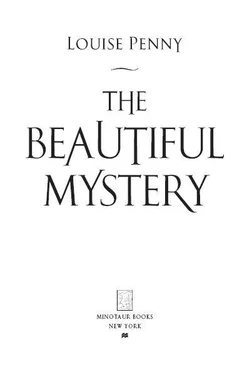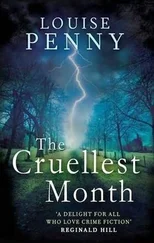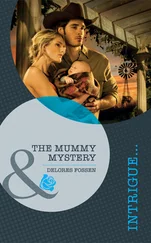Rome disagreed. The pope had conducted his own search and found another written record. He insisted his piece of tattered vellum recorded how the Divine Office should be sung.
And so, as often happens when men of God disagree, a war erupted. Volleys of plainsong were hurled between the Benedictine monastery of Solesmes and the Vatican. Each insisting theirs was closer to the original and therefore, closer to the Divine. Academics, musicologists, famous composers and humble monks weighed in on the subject. Choosing sides in the escalating battle that soon became more about power and influence and less about simple voices raised to the glory of God.
Who had found the original Gregorian chant? How should the Divine Office be sung? Who possessed the voice of God?
Who was right?
Finally, after years, a quiet consensus arose among the academics. And then was even more quietly suppressed.
Neither was correct. While the monks of Solesmes were almost certainly far closer to the truth than Rome, it appeared even they were not there yet. What they found was historic, priceless—but it was incomplete.
For something was missing.
The chants had words and neumes, indications of when monastic voices should be raised, and when they should be hushed. When a note was higher, and when it was lower.
What they didn’t have was a starting point. Higher, but from where? Louder, but from where? It was like finding a complete treasure map, with an X for exactly where to end up. But not where to begin.
In the beginning …
The Benedictine monks of Solesmes quickly established themselves as the new home of the old chants. The Vatican eventually relented and within a few decades the Divine Office had regained favor. The resurrected Gregorian chants spread to monasteries worldwide. The simple music offered genuine comfort. Plainsong in an increasingly noisy world.
And so the abbot of Solesmes passed away quietly, knowing two things. That he had achieved something significant and powerful and meaningful. He’d revived a beautiful and simple tradition. He’d restored the corrupted chants to their pure state, and won the war against a gaudy Rome.
But he also knew, in his heart, that while he’d won, he hadn’t succeeded. What everyone now took to be genuine Gregorian chants were close, yes. Almost Divine. But not quite.
For they had no starting point.
Dom Prosper, a gifted musician himself, couldn’t believe the monk who had codified the first plainchants wouldn’t tell future generations where to start. They could guess. And they did. But it wasn’t the same as knowing.
The abbot had argued passionately that the Book of Chants his monks had found was the original. But now, on his deathbed, he dared to wonder. He imagined that other monk, dressed exactly as he was now, bending over candle-light.
The monk would have finished the first chant, created the first neumes. And then what? Dom Prosper, as he drifted in and out of consciousness, in and out of this world and the next, knew what that monk would have done. That anonymous monk would have done what he’d have done.
Dom Prosper saw, more clearly than his brothers chanting soft prayers over his bed, that long dead monk bending over his desk. Going back to the beginning. The first word. And making one more mark.
At the very end of his life, Dom Prosper knew there was a beginning. But it would be up to someone else to find it. To solve the beautiful mystery.
ONE
As the last note of the chant escaped the Blessed Chapel a great silence fell, and with it came an even greater disquiet.
The silence stretched on. And on.
These were men used to silence, but this seemed extreme, even to them.
And still they stood in their long black robes and white tops, motionless.
Waiting.
These were men also used to waiting. But this too seemed extreme.
The less disciplined among them stole glances at the tall, slim, elderly man who had been the last to file in and would be the first to leave.
Dom Philippe kept his eyes closed. Where once this was a moment of profound peace, a private moment with his private God, when Vigils had ended and before he signaled for the Angelus, now it was simply escape.
He closed his eyes because he didn’t want to see.
Besides, he knew what was there. What was always there. What had been there for hundreds of years before he arrived and would, God willing, be there for centuries after he was buried in the cemetery. Two rows of men across from him, in black robes with white hoods, a simple rope tied at their waists.
And beside him to his right, two more rows of men.
They were facing each other across the stone floor of the chapel, like ancient battle lines.
No , he told his weary mind. No. I mustn’t think of this as a battle, or a war. Just opposing points of view. Expressed in a healthy community .
Then why was he so reluctant to open his eyes? To get the day going?
To signal the great bells that would ring the Angelus to the forests and birds and lakes and fish. And the monks. To the angels and all the saints. And God.
A throat cleared.
In the great silence it sounded like a bomb. And to the abbot’s ears it sounded like what it was.
A challenge.
With an effort he continued to keep his eyes closed. He remained still, and quiet. But there was no peace anymore. Now there was only turmoil, inside and out. He could feel it, vibrating from and between the two rows of waiting men.
He could feel it vibrating within him.
Dom Philippe counted to one hundred. Slowly. Then opening his blue eyes, he stared directly across the chapel, to the short, round man who stood with his eyes open, his hands folded on his stomach, a small smile on his endlessly patient face.
The abbot’s eyes narrowed slightly, in a glare, then he recovered and raising his slim right hand, he signaled. And the bells began.
The perfect, round, rich toll left the bell tower and took off into the early morning darkness. It skimmed over the clear lake, the forests, the rolling hills. To be heard by all sorts of creatures.
And twenty-four men, in a remote monastery in Québec.
A clarion call. Their day had begun.
* * *
“You’re not serious,” laughed Jean-Guy Beauvoir.
“I am,” nodded Annie. “I swear to God it’s the truth.”
“Are you telling me,” he picked up another piece of maple-cured bacon from the platter, “that your father gave your mother a bathmat as a gift when they first started dating?”
“No, no. That would be ridiculous.”
“Sure would,” he agreed and ate the bacon in two big bites. In the background an old Beau Dommage album was playing. “ La complainte du phoque en Alaska .” About a lonely seal whose love had disappeared. Beauvoir hummed quietly to the familiar tune.
“He gave it to my grandmother the first time they met, as a hostess gift, thanking her for inviting him to dinner.”
Beauvoir laughed. “He never told me that,” he finally managed.
“Well, Dad doesn’t exactly mention it in polite conversation. Poor Mom. Felt she had to marry him. After all, who else would have him?”
Beauvoir laughed again. “So I guess the bar is set pretty low. I could hardly give you a worse gift.”
He reached down beside the table in the sunny kitchen. They’d made breakfast together that Saturday morning. A platter of bacon and scrambled eggs with melted Brie sat on the small pine table. He’d thrown on a sweater this early autumn day and gone around the corner from Annie’s apartment to the bakery on rue St-Denis for croissants and pain au chocolat. Then Jean-Guy had wandered in and out of the local shops, picking up a couple of cafés, the Montréal weekend papers, and something else.
Читать дальше











